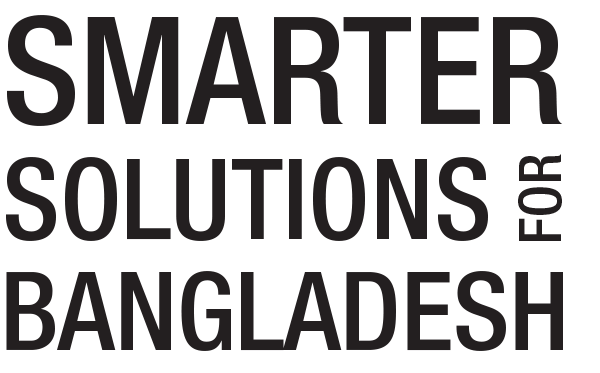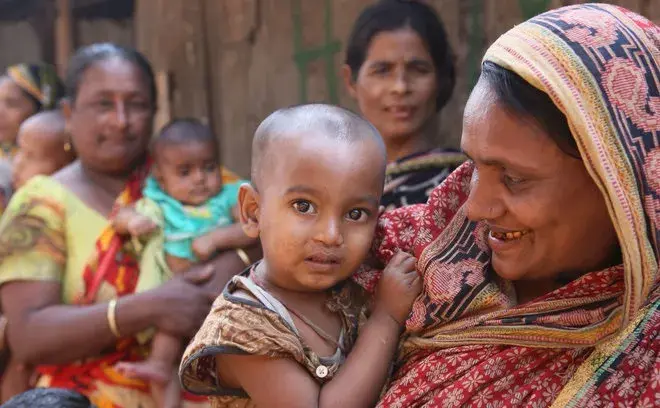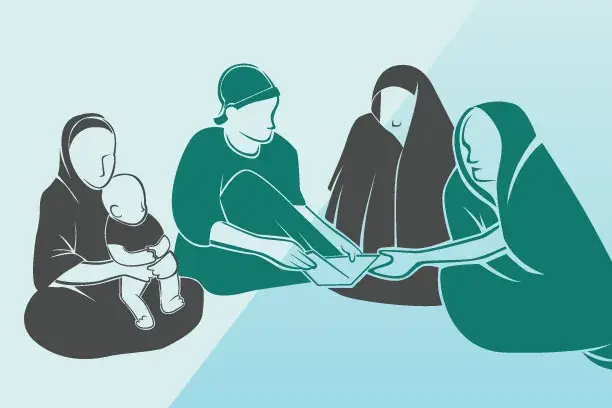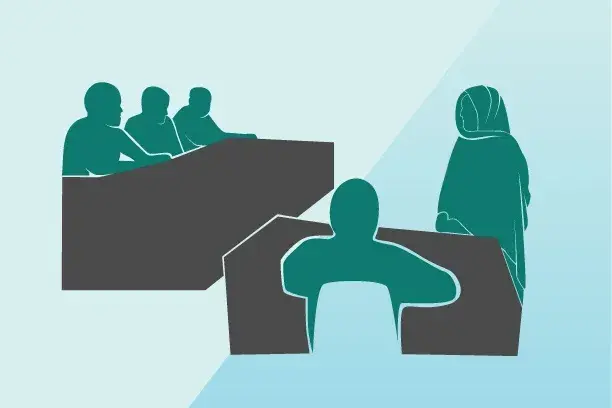Poverty
Despite cutting the rate of extreme poverty from 34 percent in 2000 to just 13 percent today, 20 million Bangladeshis still live in conditions considered to be ultra poor. Two of our economists, Munshi Sulaimanof BRAC International and Farzana Misha of Erasmus University Rotterdam, have examined some of the most important ways to tackle poverty in Bangladesh: unconditional cash transfers, livelihood training programs, “graduation” programs and the expansion of local village courts.
Proposed Strategies
| Strategy | Taka of total benefits per taka spent |
|---|---|
| Unconditional cash transfers | 0.8 |
| Livelihood programs | 1 |
| Ultra-poor graduation programs | 1.9 |
| Expand village courts | 18 |
Comparative cost-benefit analysis of programs for the ultra-poor in Bangladesh
Within the area of extreme poverty, the most promising strategy is “graduation”, which involves helping recipients through a variety of methods and over a particular time sequence. In total, each taka spent on graduation programs in Bangladesh could achieve two takas of social good, allowing participants to save for the future and, ultimately, escape extreme poverty.
In the context of Bangladesh, the Graduation program has already been scaled up through various programs by several government and non-government agencies. For continued reduction of ultrapoverty in the country, such initiatives need to continue."
- Munshi Sulaiman & Farzana Misha
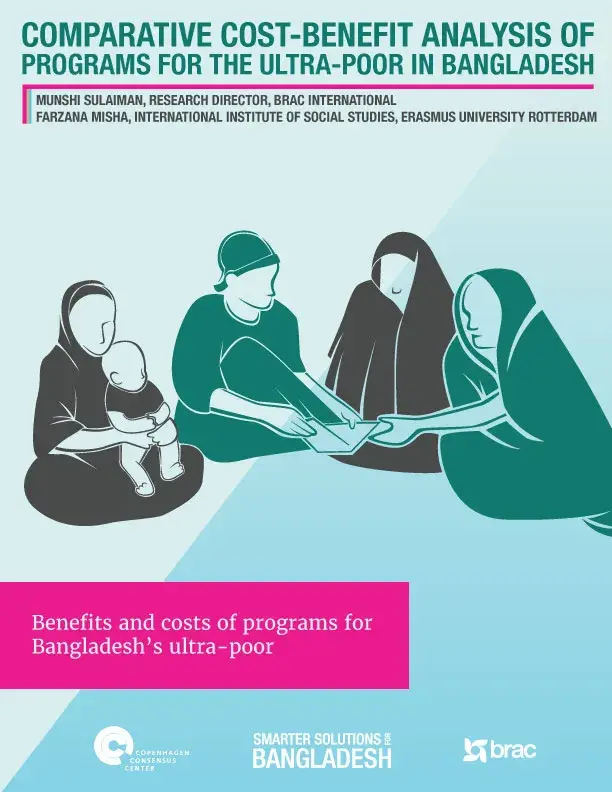
Cost Benefit Study on Implementing Village Courts in Union Parishads of Bangladesh
Research by Md. Shanawez Hossain and Nabila Zaman, of the BRAC Institute of Governance and Development, notes that not only are court cases expensive, limiting justice for the most impoverished and least influential citizens, but the country also has a backlog of approximately 2.7 million rural legal cases, with the average case taking 5 years.
The formal system of justice in Bangladesh has yet to perform efficiently, as most cases that are filed are not resolved on time."
- Md. Shanawez Hossain & Nabila Zaman
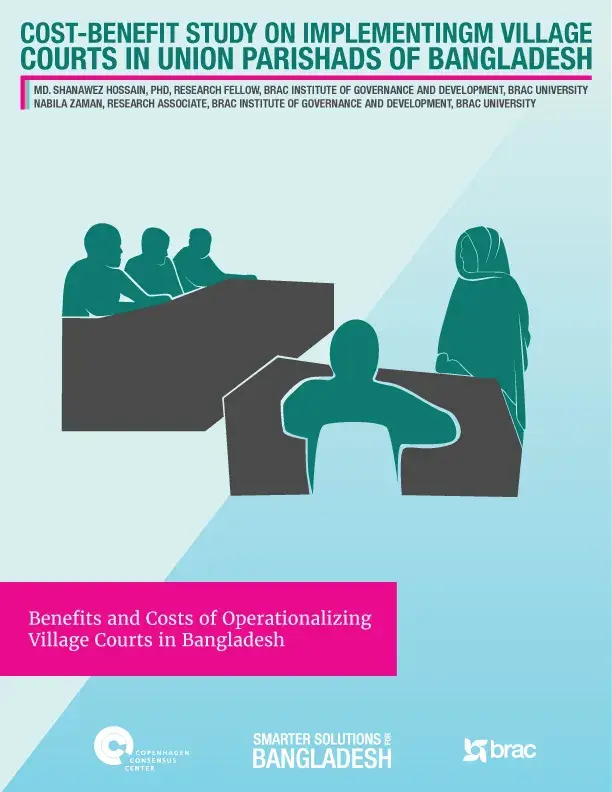
Fighting Poverty
In a series of op-eds published in The Daily Star and Prothom Alo, Bjorn Lomborg outlined the key findings of the path-breaking research produced by the Bangladesh Priorities project.
Graduation programs would increase recipients' incomes by at least one-third. And it's likely that household benefits are somewhat understated, because the analysis has only estimated the income benefit but not the improved nutrition status of children."
- Bjorn Lomborg
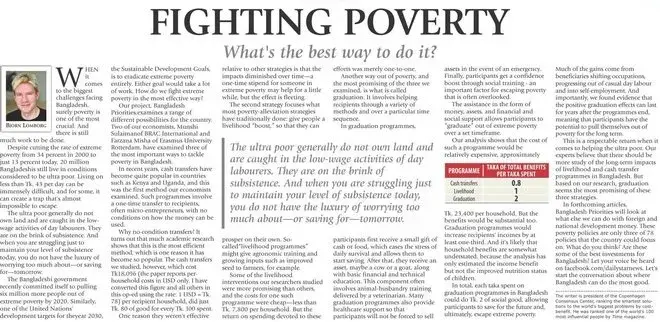
What's the smartest solution for Bangladesh?
Are these some of the best investments for Bangladesh to alleviate poverty? After reviewing 1,000s of pages of peer-reviewed research an Eminent Panel ranked 72 solutions from the best to the worst in terms of delivering the most social, economic and environmental value for money. Find out what they ranked the highest here.

